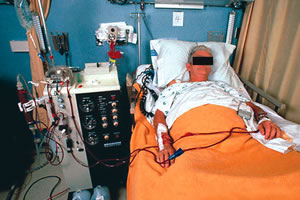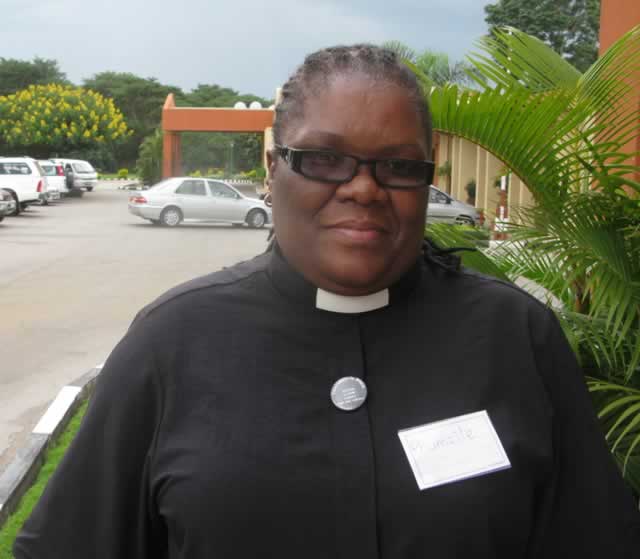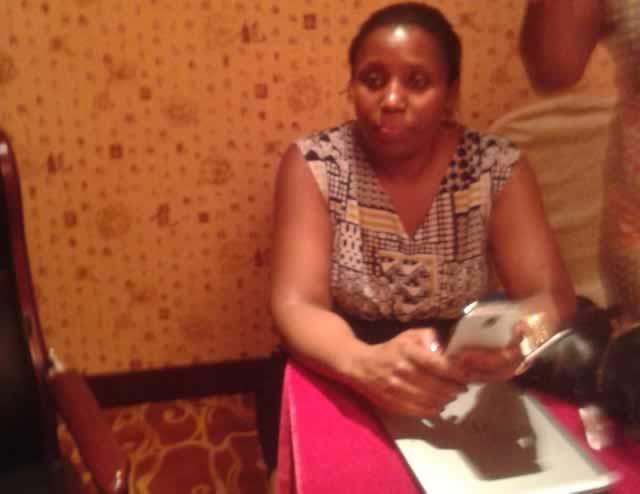Raw deal for HIV+ renal patients

There are still a lot of care and wellness needs that one needs to access at health facilities just like any other citizen.
Martha said that the advent of ARVs brought a new lease of life but just like people with functioning immune systems, she falls ill time and again.
“What annoys me most when I go for the routine check-up at the health care facility is that I feel I am considered as an HIV diagnosis rather than a human being. Yet we all now know that the advent of ARVs has made people healthy and can go about with the normal duties, so it’s surprising that any other health issue that I present with seem to be brushed aside. I still fall ill like any other person and need to be treated in that aspect. Thanks to political commitment, HIV is the least of my worries right now. For me the moment I present at a facility where they know my status, then the HIV seems to cloud everything else,” said Tholanah in Harare recently.
“In the communities that we are working with we are seeing a lot of deaths and we are convinced this can be prevented. We still have confidence that the health care system can actually deliver in spite of the challenges that we are aware of. When a person makes a complaint it is dismissed or minimised just because one is HIV positive. That complaint ought to have been looked at in different way,” said Tholanah.
Tholanah said usually when a person resorts to using herbal supplements or other traditional medicines it’s because one would be desperate.
“They need to pay more attention to screening to rule out any potential life-threatening risks.
In that aspect that needs to change as in most cases when one gets seriously ill one is accused of presenting late yet you had come before.
“This is putting people at risk. Initially one brings a complaint and is dismissed. So from there one can go for alternatives which maybe putting you at even higher risk. It’s because you haven’t had the support from the health care facility,” she added.
“This usually occurs because one would be looking for relief. We need to advocate more and it seems we have relaxed and got comfortable.
“With the advent of ARVs we haven’t moved on to say ‘our wellness’, there are still some concerns not addressed,” she said.
Tholanah sees access success despite there still being a gap in supply.
“While we are saying to the public health care system, there are so many Aids advocacy, they seem to be concerned with access to ARVs. Access to ARVs is there, the Government commitment is not in doubt here, so why not have advocacy move to the next need.
“At first we talked of prevention of deaths through provision of ART now we are saying quality matters.
“The Government has no dispute with the needs gap, they are aware and working on it and there is that commitment from the National Aids Trust Fund to work with the multi sectoral programme. So, it’s time for advocacy to demand quality and all-round health care supplied to any other patient for PLHIV,” she said.
Tholanah feels that it’s the activists’ duty to point where the needs still falls short so that measures can be implemented.
“What remains is for us to support the Government in identifying where the quality gaps are as we are in touch with the communities that are consumers of the service. We must also offer ourselves in terms of solutions because as civil society we work to complement the Government services and also in line with the ZNASP II. We cannot attain the three zeroes if we do not do this,” she said.
Tholanah believes it attaining the three zeroes is impossible if HIV positive patients are denied haemodialysis in public hospital.
In such cases, renal failure for PLHIV is a death sentence.
Tholanah is bereaved and is concerned in that recently she lost a member of ICW due to renal failure. She was denied haemodialysis in the public sector where she accessed her ARVs. She was told to go to the private sector where a session costs US$200 and she needed three sessions per week, which was beyond her reach.
“What is it that is done at the private sector that the public health care system cannot do insure the machines are safe for everyone to use?” she queried.
“It is just a case of someone not caring or moving with the times. In the developed world they use the same machines for everyone, they make sure they are properly sanitised so do we have to lag behind or wait for the developed world, (even private sector here) to knock that sense that the machines can be safely sanitised?” she asked.
What then are the alternatives for PLHIV and those with Hepatitis B when they cannot get haemodialysis? There are so many other bottlenecks in the delivery system, she is concerned.
Dialysis is a stop-gap measure to alleviate pain and suffering as a patient awaits a kidney donor. For some a transplant would not be appropriate so dialysis is the life giver.
“The private sector sanitises their equipment, so is this too complicated for the public sector to do?” she asks.
“When the NAC was formed we had a disaster and now with it seeming to come under control why not diversify and have a National Health Levy to cover all the other needs, e.g. non-communicable diseases, like cancer. We can have other cases of Hepatitis B, meningitis all those difficult to treat and expensive chronic illnesses catered for. A small addition on the levy would be acceptable to many people. That can even be taken from VAT, a small percentage at least for wellness and there would be minimal evasion,” she added.
Tholanah said that attaining the three zeroes would remain a pipedream as long as there was discrimination in the health care system.
“We can continue shouting the three zeroes like a fashion which will wear off but for us to get meaningful outcomes, the discrimination needs to come to an immediate end. By virtue of being denied haemodialysis, one is sent to an early grave,” she said.
In a story carried by The Herald in September 2011, it was reported that major public hospitals faced an acute shortage of dialysis machines and major referral centres excluded renal patients living with HIV from treatment. Also excluded were those suffering from Hepatitis B. It was reported that Harare Hospital and Parirenyatwa had 20 machines and denying HIV patients access to the machines was designed to avoid cross infections. Dr Thomas Zigora, the chief executive officer for Parirenyatwa Hospital, said the hospitals 14 machines were overworked.
“We are not offering that service here, it’s only available at private hospitals. Here at Parirenyatwa we only have 14 dialysis machines and these cater for people who are not infected,” he said.
He pointed out that apart from the shortage of machines the institution also had a shortage of specialised nurses in that unit.
They planned on training more nurses in the renal unit this year.
Precious Mera, a nurse working in the UK, expressed dismay and wondered why HIV patients were being discriminated against.
“When I went to the UK in 2000, the situation back home was bad. People were dying without ARVs. I was surprised when I got in the UK. Rarely did one see anyone with Aids symptoms yet back home it was the norm. If one was like that then they had just landed and were foreigners seeking health access. Today there is no separate clinic for HIV patients. It appears back home our medicine is not moving with the speed it deserves. It is very, very safe to use a dialysis machine for all patients. It is just sanitised. If health practitioners select to remain in the last decade then it’s costly for the patients at large,” wrote Mera in an email.
It appears the private sector is moving in the right direction as the public health sector continues in the discriminatory mode for renal patients living with HIV.
Advocacy, as stated by Tholanah, must know that access to ART is not a silver bullet. Dialysis for all patients even if it means reserving one machine for HIV patients could do.
Advocacy groups make that noise now when you are in good health, it may be you suffering renal failure in the near future.
Health for all, zero-Aids related deaths will remain a pipedream for all PLHIV if this anomaly is not addressed.








Comments